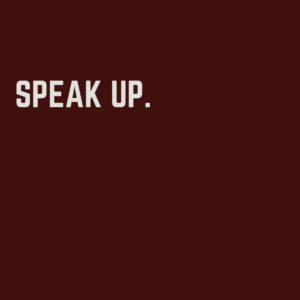For our final post, we are encouraging you to be bold. You’ve done the work of listening, learning and contributing. Now is a more important time than ever to speak UP. Here are some ways you can make a difference in your Local Government and affect change in Prison Reform. Oh yeah, and I don’t think we can say this loud enough: VOTE!
—
Research and Vote:
-
Research your local and national candidates and their track records on racial justice issues.
-
Want a non-biased list of where our two presidential candidates stand on policies? Take a look here: https://www.cnn.com/election/2020/candidates
-
-
Research your local prosecutors. Prosecutors have a lot of power to give fair sentences or Draconian ones, influence a judge’s decision to set bail or not, etc.
Contact your representative: Call or write to your city or state government representative to address the following issues:
-
Replace Columbus Day with Indigenous People’s Day like these cities did.
-
Google whether your local police department currently outfits all on-duty police officers with a body-worn camera and requires that the body-worn camera be turned on immediately when officers respond to a police call. If they don’t, advocate for it. The racial make-up of your town doesn’t matter – this needs to be standard everywhere. Multiply your voice by soliciting others to advocate as well, writing on social media about it, writing op-eds, etc.
-
Read up about mandatory minimum sentences and watch videos about this on Families Against Mandatory Minimums (FAMM’s) website. The site includes work being done at the federal level and state level. Reach out to your local officials about reducing mandatory minimum sentences for non-violent drug crimes.
-
Learn about the current cash bail system. This means that someone who may be legally innocent is put in jail because they can’t afford bail, and it also means that a defendant can be released pre-trial because of their wealth, not how much of a flight risk they are. It puts more people in detention (which taxpayers pay for) and affects a defendant’s ability to maintain employment, access mental and physical healthcare, and be in communication with their loved ones. Housing the approximately 500,000 people in jail in the US awaiting trial who cannot afford bail costs US taxpayers $9 billion a year.*

















